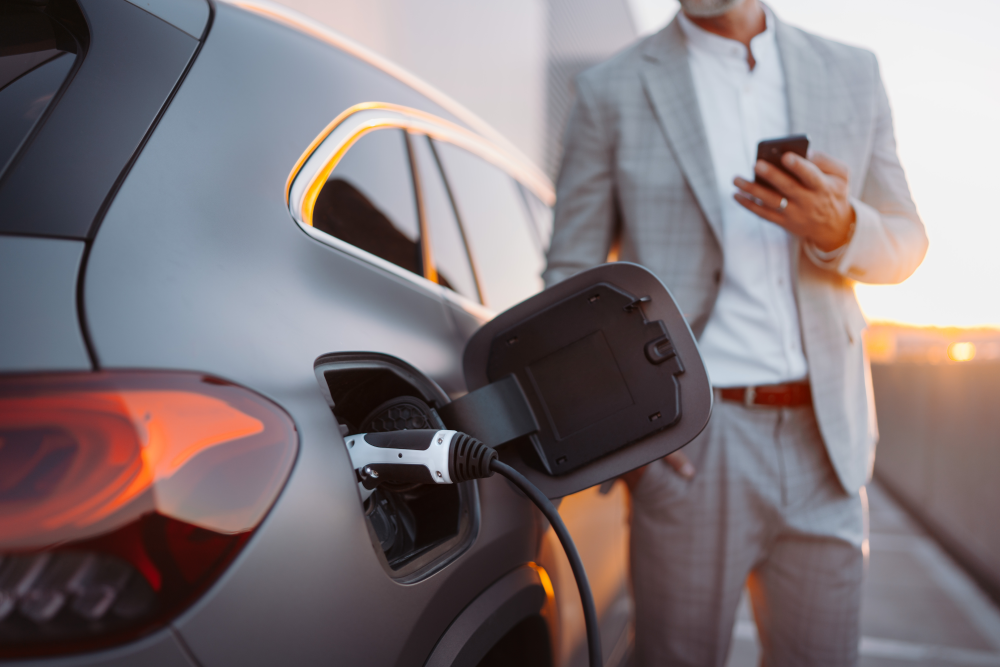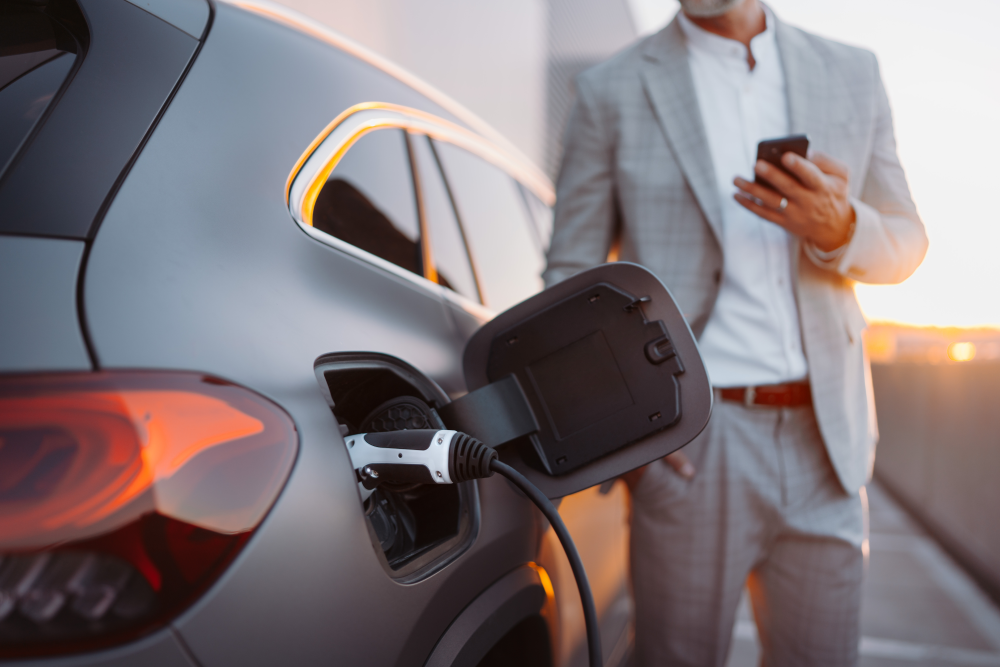A Faster Charge for Electric Vehicles
Governments are turning to economic incentives, including tax credits, and to manufacturer phaseouts to replace internal combustion engine cars with electric vehicles (EVs). For EVs to fully live up to the standards that many drivers have come to expect, however, they need to reliably travel as far as their petroleum-burning counterparts in the same amount of time. To do so in a sustainable way requires developing small, energy-dense batteries that charge quickly. Chao-Yang Wang of Pennsylvania State University and his colleagues now demonstrate a method for recharging state-of-the-art EV batteries in just 10 minutes [1].
Most of today’s EVs use lithium-ion (Li-ion) batteries, which have a high energy per unit mass—or energy density—relative to other electrical energy storage systems. A conventional long-range EV battery pack, for example, can store 120 kWh of energy, enough to travel 500 to 600 km. But these packs are expensive and require a vast amount of nonsustainable materials to produce. They also take an hour to charge at a public charging station. Replacing a long-range pack with a medium-range pack—that stores 60 kWh and charges in 10 minutes—could maintain similar travel times during long-distance trips.
According to Wang, there are three main challenges for developing a genuinely useful fast-charging battery. First, it must be rechargeable in 10 minutes for over 1000 cycles, which is roughly equivalent to a cycle life of 80 to 100 months. Second, it must be safe from thermal runaway, a chemical chain reaction that commonly occurs inside a battery once it reaches a certain temperature. Last, it must not require excessive cooling, which often entails installing liquid microchannels that are prone to leaking and causing fires. Wang says that “creative inventions” are needed to meet these challenges.
Researchers have developed fast-charging systems, but they often suffer from “plating,” a buildup of lithium metal on the anode surface that reduces battery performance and can be hazardous. Wang developed an approach that avoids plating by raising the battery temperature prior to charging. In preliminary testing with a simple battery, he and his colleagues found that the higher temperature accelerates the electrochemistry and transport processes so that the ions do not aggregate under very high current charging. After charging is complete, the battery is cooled down to allow the discharging (energy delivery) phase to occur at ambient temperature. The approach, called asymmetric temperature modulation, could work with various types of battery materials and is a “physical method for solving chemistry challenges,” says Wang.
Wang’s team now demonstrates an automotive version of asymmetric temperature modulation by developing a Li-ion battery cell with a dual-salt electrolyte and a more porous anode for improved ion transport. State-of-the-art battery cells have an energy density of 240 Wh/kg and take hours to charge from 0 to 100%. Wang and colleagues achieved 10-minute charging for their 265-Wh/kg battery using thermal modulation. They showed that the battery could withstand 900 cycles of charging and discharging, which is equivalent to a half-million-mile range in which every charge is equally fast. Computer simulations indicated that the device could be cooled using just air convection, avoiding the need for leak-prone liquid channels. “We are very excited to see that this approach offers a rare solution, which not only achieves ultrafast charging capability but also avoids overheating and improves battery safety,” says Wang.
There has long been a concern that operating Li-ion batteries at elevated temperatures may lead to side reactions that degrade performance, says Zhijia Du, a staff scientist at Oak Ridge National Laboratory in Tennessee, who works on fast battery charging. “However, Wang and colleagues show that a rapid temperature increase during a short time period can benefit fast charging of Li-ion batteries without adversely affecting the batteries.”
EC Power, a start-up company founded by Wang, is working to build a factory in Pennsylvania that could potentially start mass producing these batteries in 2025. The manufacturing process would be similar to that of traditional Li-ion batteries—with a few additional steps to include an internal heating structure. “Our future goal is to realize 5-minute charging of 250 to 300 Wh/kg batteries for 2000 cycles,” says Wang.
–Rachel Berkowitz
Rachel Berkowitz is a Corresponding Editor for Physics Magazine based in Vancouver, Canada.
References
- C. Y. Wang, “Fast charging of energy-dense lithium-ion batteries,” Nature (2022).





